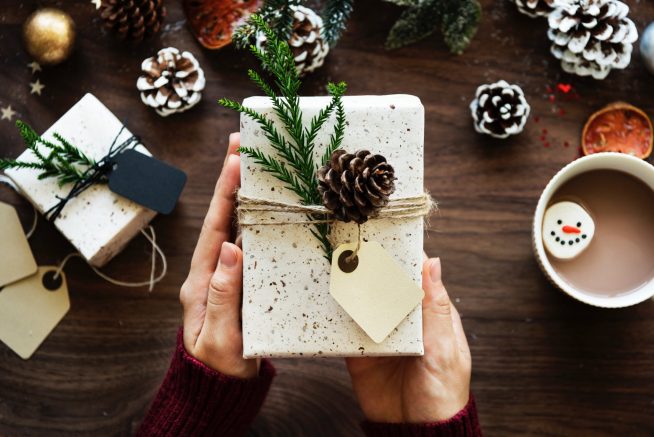One thing I often think about is generosity—what it means to be generous, how to be generous.
It’s not just a matter of buying presents for people—though presents are important, too. I hate to shop, and I don’t much like to receive stuff myself, so I’m reluctant to give things to people. I’ve been trying to be better about giving gifts when appropriate, and also trying to figure out how to be generous in intangible ways.
Baltasar Gracian wrote, “The great art of giving consists in this: the gift should cost very little and yet be greatly coveted, so that it may be the more highly appreciated.”
A friend of mine once told me about a gift she received that’s a perfect example of this kind of generosity. Her friend told her, “For Christmas, I’m going to replace every burned-out lightbulb in your house.” And she did. She went around the house, took out every burned-out bulb, went to the hardware store to buy replacements, and put fresh bulbs in every empty socket.
And when my friend went to her hardware closet the following weekend, she discovered that she’d also received stacks and stacks of spare bulbs.
What a great idea! What a simple yet brilliant gesture. It reminded me of the scene in Anne Lamott’s fantastic memoir Operating Instructions, when a man from her church comes to help her with her new baby, and ends up cleaning her bathroom.
When I was thinking about how to be generous, I found myself thinking, “If I were a professional chef, I could cook…or if I were really good at computers, I could help someone set up their system…but I don’t really have any special skills. What can I do?” Well, I could change some lightbulbs.
Over the years, I’ve tried to find ways to be generous that tap into my own nature. Helping friends clean out their closets is my favorite thing to do (I love to do this so much that really, they’re the ones being generous to me, by letting me come over). I’ve reviewed friends’ books on Amazon, given helpful information, repeated behind-the-back compliments I hear (hearing that someone complimented you when you weren’t present is always more gratifying, because it’s presumably more sincere), taken photos of other people’s kids and sending them copies, etc. Sometimes I do buy things for people.
What has surprised me (though it’s really not surprising) is that the most effective way to be generous is to connect people. I’ve had a few MAJOR hits—when I’ve introduced people who then made life-altering changes (business and personal) based on that new relationship. And the crazy thing is that it took so little effort on my part. A quick conversation, a few emails, a few prods, and—wham.
And who is made happiest by such an act of generosity? Me! This is the heart of happiness, the fundamental truth that sounds like a commercial for an Oprah episode. Nothing makes me happier than helping someone else to be happy. Do good, feel good! Try it at home!
It sounds so priggish, but zoikes, it really does work!
Gretchen Rubin is the author of the #1 New York Times Bestseller The Happiness Project—an account of the year she spent test-driving the wisdom of the ages, current scientific studies, and lessons from popular culture about how to be happier—and the recently released Happier at Home and Better Than Before. On her popular blog, The Happiness Project, she reports on her daily adventures in the pursuit of happiness. For more doses of happiness and other happenings, follow Gretchen on Facebook and Twitter.
Image courtesy of rawpixel.com.












